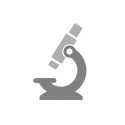PCR Test - what is it and how the test is done
The Polymerase Chain Reaction (PCR) test for Covid is a test that helps analyse whether a person is suffering from Covid infection or not. The PCR Test for Covid is so far considered to be th...
Find out where to get a PCR Covid Test (Covid PCR Test) in San Lorenzo di Sebato. Compare details and costs for a PCR Test from the best labs in Italy.

Test at-Home / Self-testing

Via Julius Durst, 28, 39042 Bressanone BZ, Italia
12.5 km

Via de Cercenà, 38032 Canazei TN, Italia
22.1 km

Via Antonio Rosso, 12, 32044 Pieve di Cadore BL, Italia
33.2 km

Via Roma, 11, 39100 Bolzano BZ, Italia
32.5 km

Via Roma, 73, 39100 Bolzano BZ, Italia
32.5 km

Via Roma, 20, 39100 Bolzano BZ, Italia
32.5 km

Via Milano - Mailandstraße 46, 39100 Bolzano - Bozen South Tyrol, Italy
32.5 km

Localita' Piera 2, 38038 Tesero Trento, Italy
38.9 km

Via Roma, 113, 32013 Longarone BL, Italia
40.4 km

Via Caduti 14 Settembre 1944, 39, 32100 Belluno BL, Italia
47 km
The Polymerase Chain Reaction (PCR) test for Covid is a test that helps analyse whether a person is suffering from Covid infection or not. The PCR Test for Covid is so far considered to be th...
RT-PCR or NAAT test is the gold standard for COVID19 infection as it is a diagnostic test to check the current disorder. This test detects the COVID19 RNA in samples.
Persons have telltale signs of COVID 19 infection such as fever, fatigue, cough, and loss of smell or taste. Such persons should self-quarantine and await PCR results.
A positive PCR/NAAT result indicates that viral RNA is present in the sample. Positive results should be treated as if someone is infectious, with isolation to prevent spread and providing adequate clinical care if symptoms warrant it.